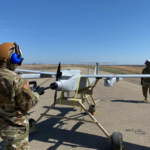
‘Today’s Ukraine could be tomorrow’s East Asia,’ Japanese Prime Minister said on rising tensions and risk of conflict in the region
Japan’s new prime minister, Shigeru Ishibain his first political speech this Friday (4), warned of the growing threat in Asia, stating that “today’s Ukraine could be tomorrow’s East Asia“. This comment was made in a context of rising geopolitical tensions and significant internal challenges, including the country’s demographic crisis, which he called a “silent emergency“.
Ishiba highlighted that the ongoing conflict in Ukraine serves as a wake-up call for East Asia. He questioned, “Why didn’t deterrence work in Ukraine?”referring to the inability to prevent the invasion, and drew parallels between the situation in Europe and the challenges facing East Asia. According to him, the growing international division, combined with events in the Middle East, is creating a more conflictual and unpredictable global environment.
In recent years, relations between Japan and China have deteriorated, with Beijing asserting its military presence in disputed territories and Japan strengthening its security ties with the United States and its regional allies. These tensions were amplified in August when a Chinese military aircraft carried out China’s first confirmed incursion into Japanese airspacefollowed by a Japanese warship sailing through the Taiwan Strait, another significant milestone.
Ishiba openly advocates the creation of a regional military alliance similar to NATO, and stated that the security environment in Asia is the most severe since the end of World War II.
Domestically, Japan also faces a growing crisis due to its aging population and low birth rate. The country has the second oldest population in the worldsecond only to Monaco, and Japan’s birth rate is far from the level needed to keep its population stable. In 2022, the Japan’s birth rate was just 1.2 children per womanfar below the 2.1 children needed to avoid population decline.
Ishiba emphasized that the situation of low birth rate is a critical issue, referring to it as a “silent emergency”. He highlighted that his government intends promote support measures for familiesincluding more flexible working hours, in an attempt to alleviate this demographic crisis.
The new prime minister succeeded Fumio Kishidawhich had lost popularity due to a series of scandals and the inflation that affected the fourth largest economy in the world. To restore confidence and stimulate the economy, Ishiba plans to implement a new monetary stimulus packageincluding support for regional governments and low-income families.
One of the objectives of the new government is increase the national minimum wage. Ishiba has stated that he wants to raise the national minimum wage to 1,500 yen (approximately US$10.20) per hour, representing a significant increase of almost 43% compared to the current value of 1,050 yen.
The markets’ reaction to Ishiba’s leadership was immediate. THE yen had an increase after he was elected leader of the Liberal Democratic Party (PLD)due to his favorable view of leaving the Bank of Japan of its ultra-flexible monetary policies. However, Ishiba stated that does not see the time as right for interest rate increaseswhich led to a further fall in the Japanese currency. On Friday, the currency traded at 146.42 yen per dollarrecovering slightly after surpassing the 147 mark at the beginning of the week.
Another important point addressed by Ishiba was the issue of imperial succession in Japan. Currently, succession to the throne is restricted to men, and the country faces an urgent lack of imperial successors. Ishiba urged lawmakers to discuss solutions to this sensitive issue, stating that “stable royal succession is extremely important” and that it is crucial to stabilize the number of members of the imperial family.
This inaugural speech reflects the urgency with which Ishiba faces both global challenges and Japan’s internal problems, presenting an action plan that aims to ensure the stability and security of the country amid an increasingly tense and uncertain scenario.
Source: https://www.ocafezinho.com/2024/10/04/shigeru-ishiba-do-japao-dispara-contra-china-e-fala-de-guerra-na-asia/

